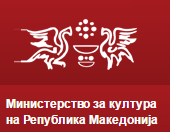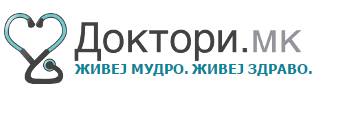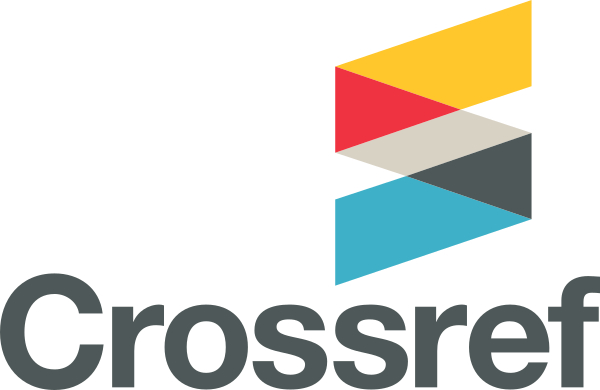Сашка Трајковски го одбрани својот магистерски труд на ден 03. 11. 2014 година, на Институтот за дефектологија при Филозофскиот факултет, Универзитет „Св. Кирил и Методиј“ – Скопје, пред комисијата во состав: проф. д-р Ристо Петров, проф. д-р Даниела Димитрова-Радојичиќ и проф. д-р Наташа Чичевска-Јованова.
|
|
Sashka Trajkovski defended her master thesis on 3th November 2014 at the Institute of Special Education and Rehabilitation, Faculty of Philosophy, University “Ss. Cyril and Methodius” -Skopje, in the presence of a commission composed of: Prof. Dr. Risto Petrov, Prof. Dr. Daniela Dimitrova Radojichikj and Prof. Dr. Natasha Chichevska Jovanova.
|
Магистерскиот труд е презентиран на 102 страници. Трудот ги содржи следните делови: Вовед, Теоретски дел, Истражувачки дел составен од: Методологија на истражувањето, Анализа и интерпретација на резултатите, Дискусија, Заклучоци и Препораки, Прилози и Литература.
Во Воведниот дел e дефиниран поимот самозастапување. Самозастапувањето на лицата со пречки во интелектуалниот развој опфаќа дел од личниот идентитет. Тоа вклучува напори на поединецот да зборува и да работи во свое име, да носи одлуки и да влијае на ситуации што се однесуваат на неговиот живот, како и да постигнe највисок можен степен на независност. Основна цел на самозастапувањето е развивање на основните вештини кај лицата со ментална ретардација, како и подобрување на односот на општествената средина кон овие лица за тие да станат полноправни членови на заедницата во која живеат и да уживаат еднакви можности, права и одговорности.
Во Истражувачкиот дел, дадена е методологијата на истражување и притоа се дефинирани предметот, целта и карактерот на истражувањето, задачите, хипотезите, варијаблите, методите, техниките и инструментите, примерокот, статистичката обработка на податоците, местото, времето, организацијата и текот на истражувањето. Предмет на ова истражување е нивото на самозастапување на лицата со лесна интелектуална попреченост кои се интернатски сместени во Центарот за образование и рехабилитација „Св. Наум Охридски“ - Скопје, како и учениците од завршните одделенија од ПОУ „Иднина“ и „Д-р Златан Сремац“ од Скопје и од ПОУ „Маца Овчарова“ од Велес, кои живеат со своите семејства. Целта беше да се утврди поврзаноста на условите за живот, како објективен фактор што го одредуваат нивото на самозастапување и различните аспекти на вештините за самозастапување. За собирање на податоците беше користена техниката на структурирано интервју, а добиените податоци беа статистички обработени со помош на t-тестот (ниво на значајност p<0,05).
Резултатите покажаа дека лицата со лесна интелектуална попреченост што живеат со своите семејства имаат подобри комуникативи вештини, поголема способност за решавање проблеми и подобро ги познаваат сопствените права од учениците што се сместени во интернат, а беа опфатени со ова истражување. Според тоа, лицата со лесна интелектуална попреченост што живеат со своите семејства имаат поголема способност за самозастапување во споредба со учениците што се сместени во интернат.
Според резултатите што ги добивме од спроведеното истражување, можеме да заклучиме дека нивото на самозастапување на лицата со лесна интелектуална попреченост е многу ниско. Многу малку од нив ги познаваат своите права, а уште помал број уживаат во своите права. Тоа укажува на потребата од сè поголема едукација на лицата со интелектуална попреченост, на оние што се поврзани со нив, како и на целото општество за да се овозможи еднаквост и рамноправност на лицата со лесна интелектуална попреченост, права што ги уживаат сите други граѓани на нашата држава.
|
|
The master thesis is presented on 102 pages. The paper contains the following parts: Introduction, Theoretical part, Research, composed of Methodology of research, Analysis and interpretation of results, Discussion, Conclusions, Recommendations, Attachments and literature.
The Introduction explains the concept of self-advocacy. The self-advocacy of people with intellectual disabilities represents a part of their personal identity. It includes the efforts of the individuals to speak and work on their behalf, to make decisions and to influence on situations regarding their life as well as to achieve the highest level of independency. The main goal of the self- advocacy is developing the basic skills of persons with intellectual disability, improving the attitude of the community towards these people and making them equal members of their community with equal rights, possibilities and responsibilities.
The Research section presents the influence on situations regarding their life as well as to achieve the highest level of independency. The main goal of the self-advocacy is developing the basic skills of persons with intellectual disability, improving the attitude of the community towards these people and making them equal members of their community with equal rights, possibilities and responsibilities, methodology of the research and defines the subject, the purpose and the character of the research, the goals, the hypothesis, the variables, the methods, the techniques and instruments, the sample, the statistical data processing, the place, the time, the organization and the course of the research. The subject of the research was the level of self-advocacy of persons with mild intellectual disability who live in a dormitory, the Center for education and rehabilitation “Ss. Naum Ohridski” - Skopje, and those who live with their families and attend the special schools “Idnina” and “Dr. Zlatan Sremec - Skopje” and “Maca Ovcharova” – Veles. The aim was to determine the connection between the living conditions as objective factors which determine the level of self-advocacy and the skills of self-advocacy. A structured interview was used as a technique and the data were statistically analyzed using t-test (statistical significance acceptance was p<0.05).
The results indicate that the persons with mild intellectual disability who live with their families have better communication skills, higher ability for problem solving and they are more aware of their rights than those who live in a dormitory and were part of the research. Further, the results show persons with mild intellectual disability who live with their families have greater ability of self-advocacy than the persons living in dormitory.
According to the results, we can conclude that the level of self-advocacy of people with intellectual disability is very low. A few of them are aware of their rights and they do not know how to enjoy their rights. This results point the need of more extensive education of the persons with intellectual disabilities, of those who are in constant touch with them and of the whole society, so that the persons with intellectual disability can be equal members in the society and enjoy the rights that the other people in our country enjoy.
|
 SNIP 0.059
SNIP 0.059 IPP 0.07
IPP 0.07 SJR 0.13
SJR 0.13 h5-index 7
h5-index 7 Google-based impact factor: 0.68
Google-based impact factor: 0.68















